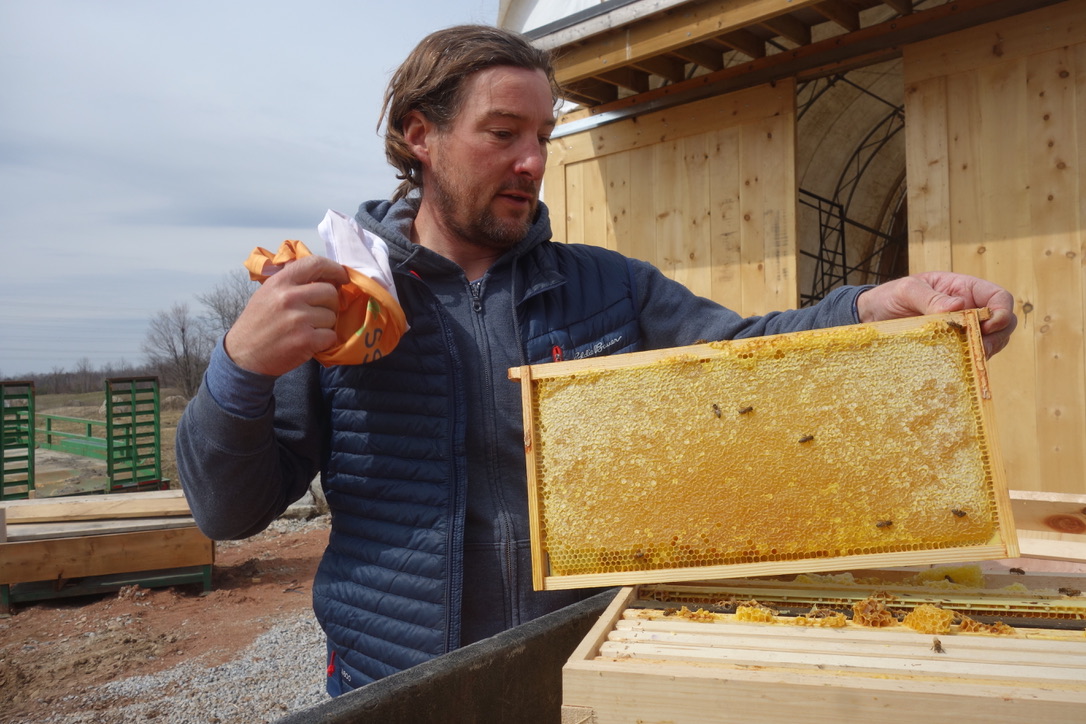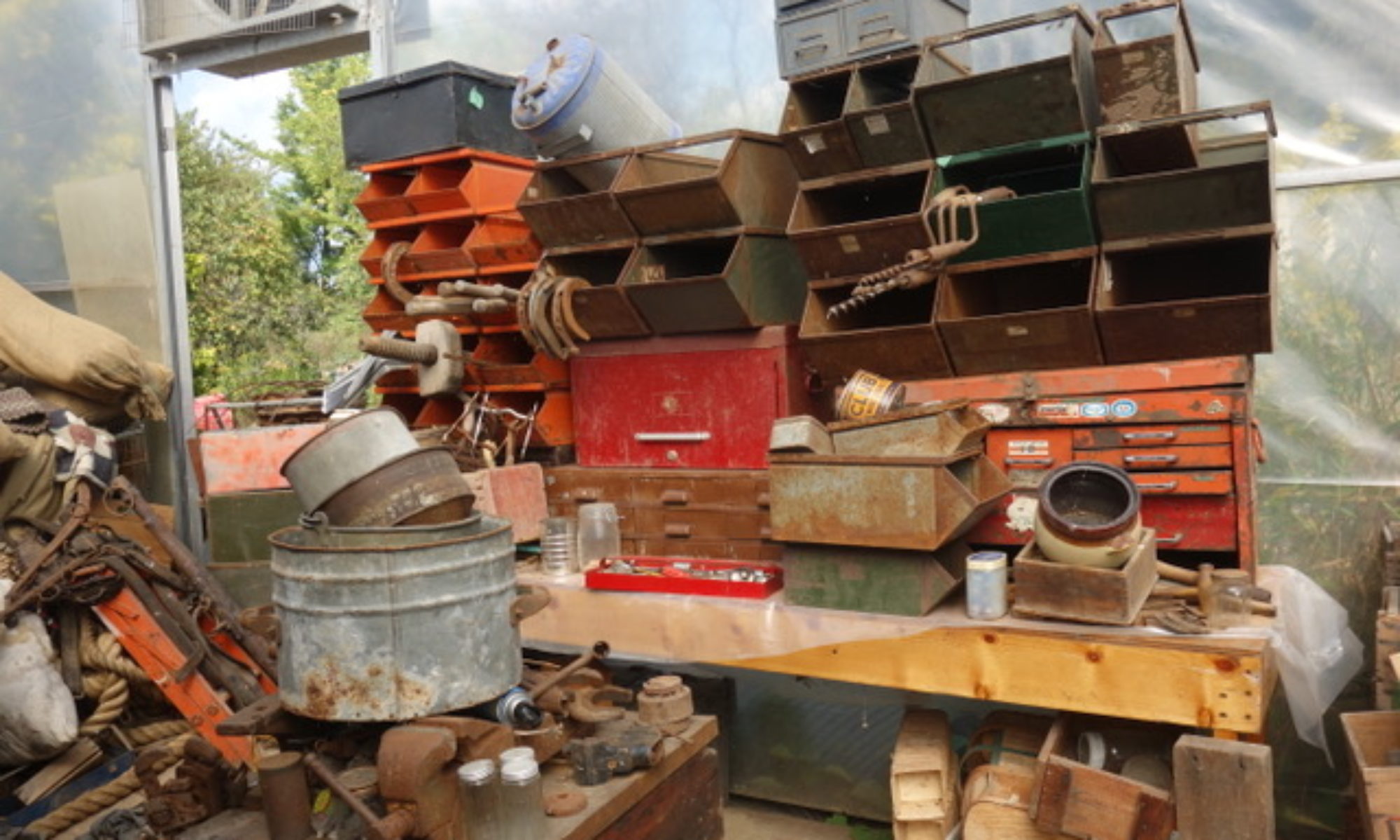EPISODE 301 SLIGHT DIVERSION INTO BEE KEEPING…
ALAN SKEOCH
APRIL 2, 2021
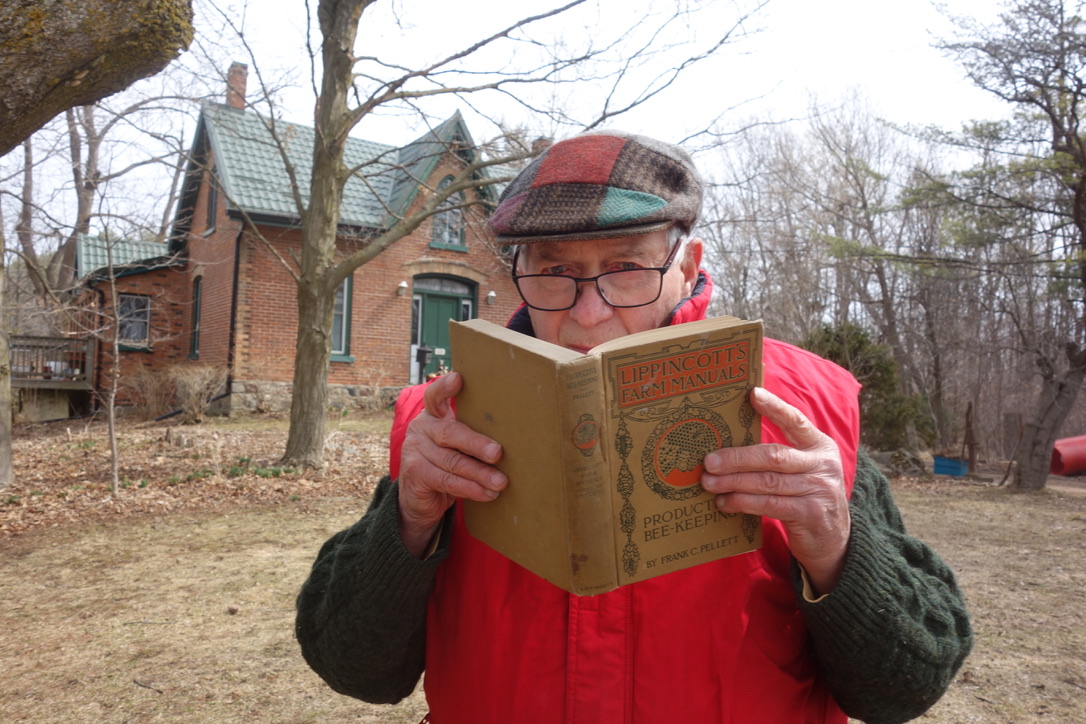
I was a total failure as a bee keeper. Must have been 40 years ago that I bought a bee colony from
somewhere in the United States. I had already bought all the support technology and had
even taken some beekeeping instruction from a man who I thought was a friend. Those
are the two mistakes I made. 1) Thinking that used bee hives and used equipment was
all I needed to become a beekeeper. 2) I thought that my instructor was a friend Oh, yes,
he knew bees. He had several hives but he turned out not to be a friend. His name will not
be mentioned.
My package of live bees arrived in the mail and I turned them loose in my old beehives.
I had never heard of all the diseases that afflict bees and was therefore startled to discover
my bees had something that was very infectious which I think was called Sack Brood…not sure.
The end result was that I had to set the hive on fire and kill my bees lest they infect other hives.
This was not a nice experience.
The worst experience was when Marjorie phoned me at school to say my bee instructor
had arrived at our house and that his intentions were not good. In that instance I acted
fast…called his home…did not care who was listening. “I am going to say this only once…
keep the hell away from my wife, my house, my life. Understand. Or do you need more instruction!”
TIME LAPSE OF 40 YEARS
WE ARE NOW BEEKEEPERS…YEARS 2020 AND 2021
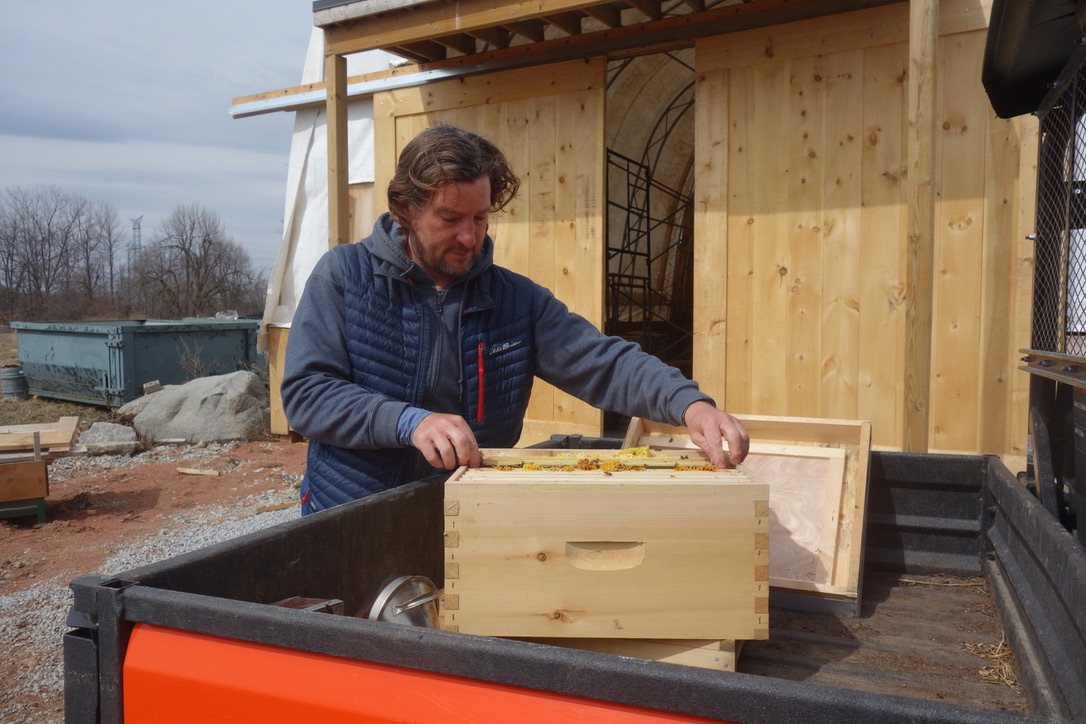
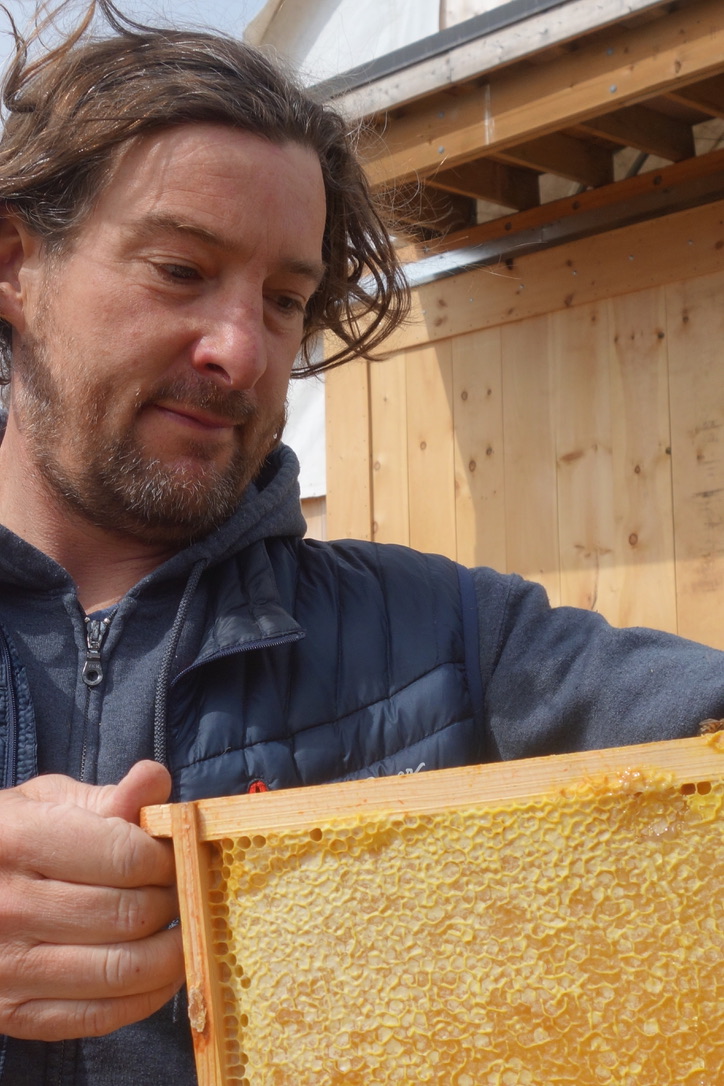
Our son Andrew decided to try beekeeping much in the way I did. Just dive into
it and see how it goes Let the bees do their work. Bee keeping is not that simple.
Like all farming, bee keeping involves careful care which means keeping an eye
on the bees.
WE Have two friends who are skilled bee keepers. Brad’s bees lived in his back
yard quite happily until they flew off in a swarm. One queen and as many worker
bees as she could persuade just buzzed off. The remaining bees tried to maintain
the home hive but for various reasons they failed Not Brad’s fault at all.
My other friend Russ is an active bee keeper. He cares for his bees as intensively as
a mother duck does with her ducklings. He does steal their honey. Carefully. Never
steals enough to starve the bees. And in the winter months he even takes sugar
syrup to his bee yard. Russ also knows how to keep bees healthy. There are
chemicals .. medIcines the bees must have.
“Andrew, maybe you and Russ should get together. He Knows bees.”
They both carefully examined Andrew’s bee yard. Andrew built a fence around
it…wire fence…to keep the skunks away. He made sure the bees had a
south exposure. And nice private place on the edge of the forest.
He checks his bees every week and his two hives of
bees have survived the winter months.
Today he is preparing for the arrival of another bee colony.
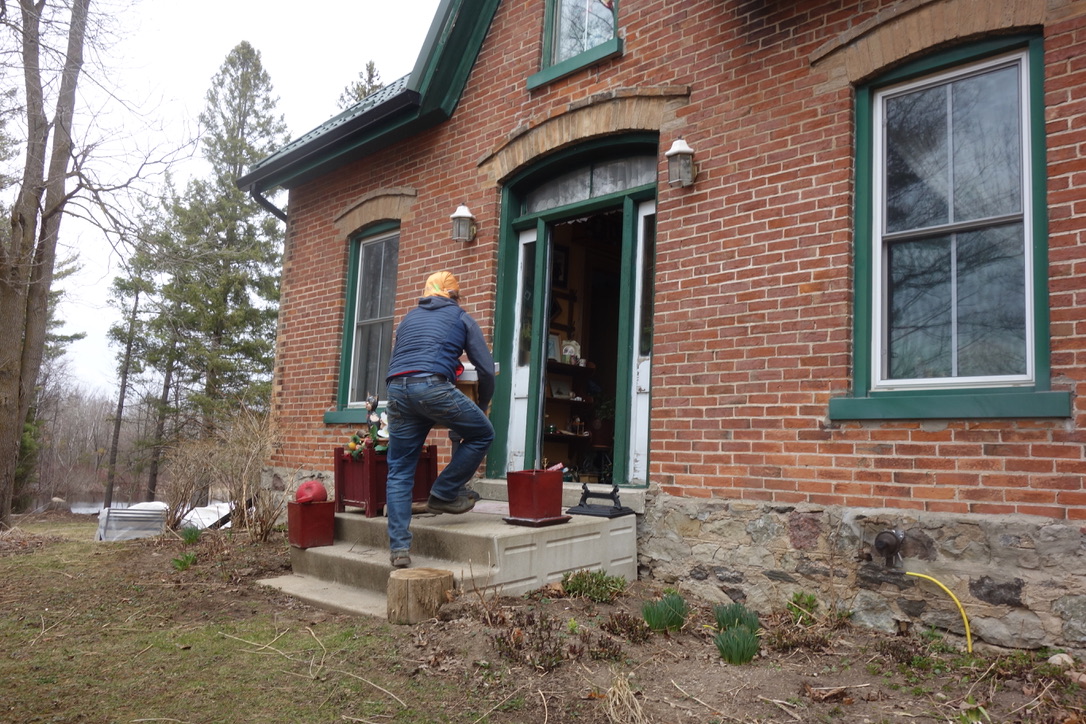
Andrew is carrying a super of bees into the farm kitchen. It is not such a good picture because I was not sure
what kind of reception Andrew would get with his notion that the hive should be warm beside the stove when the new bees arrive.
“Mom, my new bees are arriving and they must be kept
warm so Brought a welcoming bunch of bees from the bee yard.
You will find them in your kitchen. Too cold for the new
bees. Try not to disturb them.”
Marjorie is alway obliging. The bees are now in the kitchen at the farm
as I speak.
“Here dad, take a slab of honeycomb. The bees will never miss it. “
“Andrew I have a gift for you. LIppincott’s Farm Manual on Bee Keeping.
Published in 1923 as a hard cover book based on issues of his monthly magazine
copies of which were printed from 1868 to 1914. This is a rare book, Andrew,
some copies are available on the internet but not many…cost $60.”
“Do your want the $60 now?”
“No, your mother and I will expect a tub of honey now and then.”
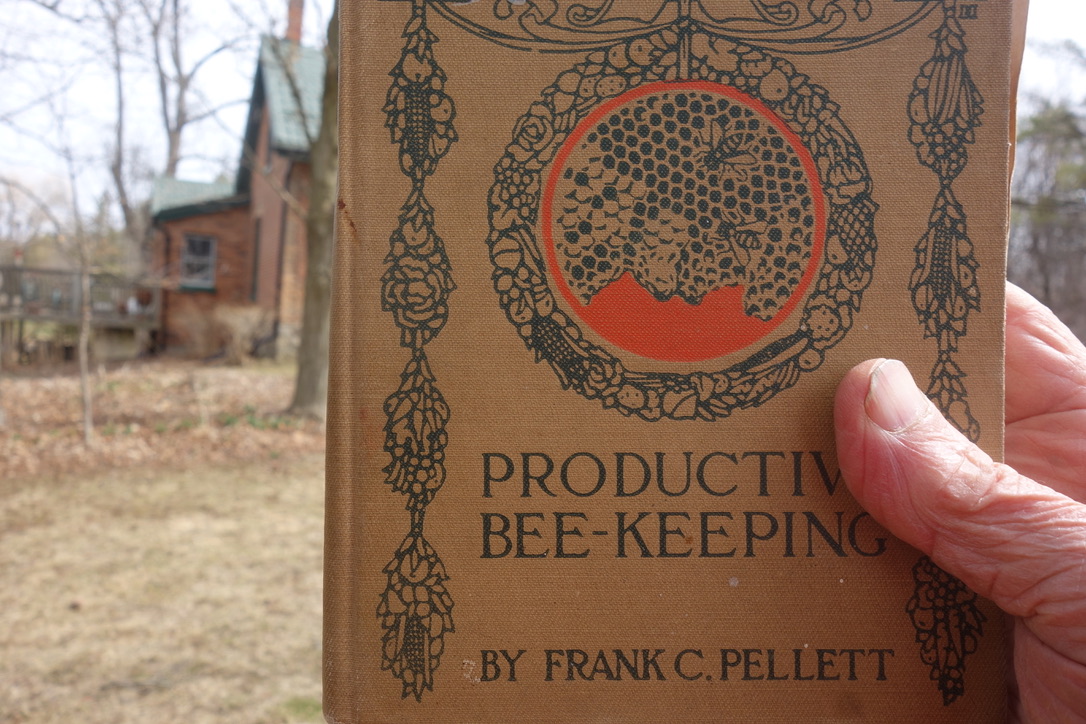
Lippincott’s developed a series of manuals regarding agricultural production, including this volume on beekeeping. Among other things, it offers a historical look at apiculture, the practice of human harvesting of products from honey bee colonies, as well as its marketing methodology. Beekeeping has quite a history, dating back to at least 15,000 years ago. The story of J.B. Lippincott & Co. offers a look at the complexities of the publishing industry. J.B. Lippincott & Co. was an American publishing house established in 1836 by Joshua Ballinger Lippincott, which still exists today as Lippincott Williams & Wilkins, which itself is an imprint of the publishing conglomerate, Wolters Kluwer, and focuses on technical journals. Initially J.B. Lippincott & Co. published Bibles and other religious materials, before expanding into fiction, almanacs, medical and other books. Later, Lippincott’s Monthly Magazine was issued, from 1868-1914 and offered novels, short stories, opinion pieces and other writings. In 1978, Lippincott’s was acquired by Harper & Row, which was then acquired by Wolters Kluwer in 1990.
